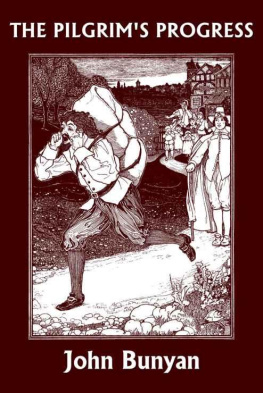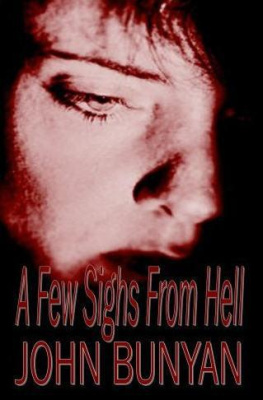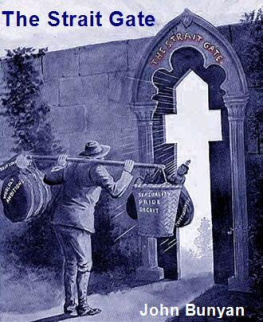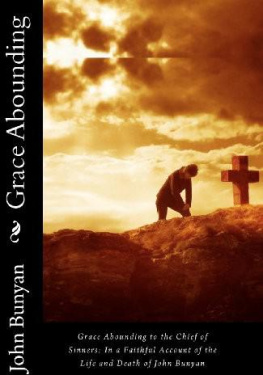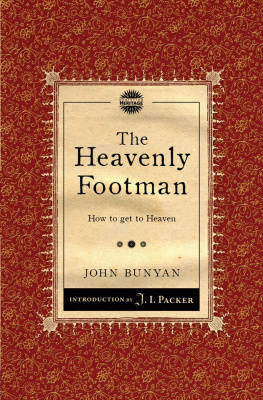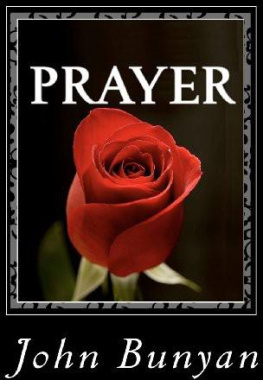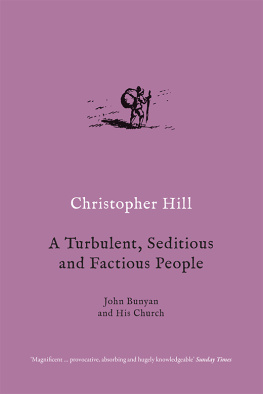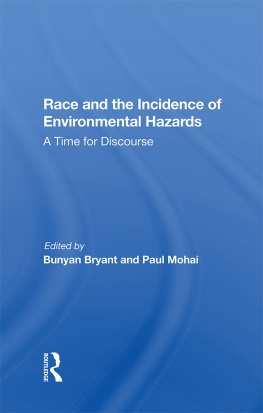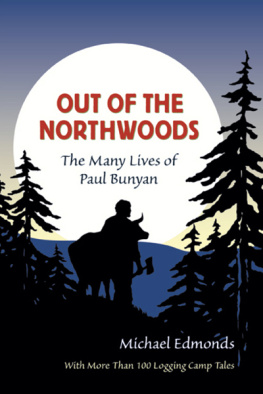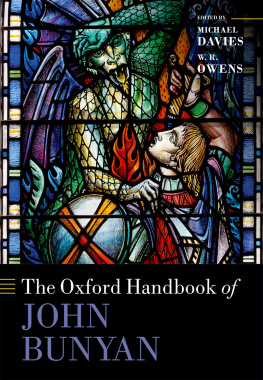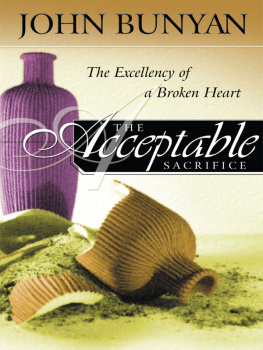John Bunyan - The Pilgrims Progress
Here you can read online John Bunyan - The Pilgrims Progress full text of the book (entire story) in english for free. Download pdf and epub, get meaning, cover and reviews about this ebook. year: 2007, publisher: Yesterdays Classics, genre: Science. Description of the work, (preface) as well as reviews are available. Best literature library LitArk.com created for fans of good reading and offers a wide selection of genres:
Romance novel
Science fiction
Adventure
Detective
Science
History
Home and family
Prose
Art
Politics
Computer
Non-fiction
Religion
Business
Children
Humor
Choose a favorite category and find really read worthwhile books. Enjoy immersion in the world of imagination, feel the emotions of the characters or learn something new for yourself, make an fascinating discovery.
- Book:The Pilgrims Progress
- Author:
- Publisher:Yesterdays Classics
- Genre:
- Year:2007
- Rating:4 / 5
- Favourites:Add to favourites
- Your mark:
- 80
- 1
- 2
- 3
- 4
- 5
The Pilgrims Progress: summary, description and annotation
We offer to read an annotation, description, summary or preface (depends on what the author of the book "The Pilgrims Progress" wrote himself). If you haven't found the necessary information about the book — write in the comments, we will try to find it.
The Pilgrims Progress — read online for free the complete book (whole text) full work
Below is the text of the book, divided by pages. System saving the place of the last page read, allows you to conveniently read the book "The Pilgrims Progress" online for free, without having to search again every time where you left off. Put a bookmark, and you can go to the page where you finished reading at any time.
Font size:
Interval:
Bookmark:
All rights reserved. No part of this book may be reproduced or retransmitted in any form or by any means without the written permission of the publisher.
This edition, first published in 2010 by Yesterday's Classics, an imprint of Yesterday's Classics, LLC, is an unabridged republication of the work originally published by The Century Company in 1898. This title is available in a print edition (ISBN 978-1-59915-213-4).
Yesterday's Classics republishes classic books for children from the golden age of children's literature, the era from 1880 to 1920. Many of our titles are offered in high-quality paperback editions, with text cast in modern easy-to-read type for today's readers. The illustrations from the original volumes are included except in those few cases where the quality of the original images is too low to make their reproduction feasible. Unless specified otherwise, color illustrations in the original volumes are rendered in black and white in our print editions.
WHEN at the first I took my pen in hand
Thus for to write, I did not understand
That I at all should make a little book
In such a mode: nay, I had undertook
To make another; which, when almost done,
Before I was aware I this begun.
And thus it was: I, writing of the way
And race of saints in this our gospel-day,
Fell suddenly into an allegory
About their journey, and the way to glory,
In more than twenty things which I set down
This done, I twenty more had in my crown,
And they again began to multiply,
Like sparks that from the coals of fire do fly.
Nay, then, thought I, if that you breed so fast,
I'll put you by yourselves, lest you at last
Should prove ad infinitum, Without end. and eat out
The book that I already am about.
Well, so I did; but yet I did not think
To show to all the world my pen and ink
In such a mode; I only thought to make
I knew not what: nor did I undertake
Thereby to please my neighbor; no, not I;
I did it my own self to gratify.
Neither did I but vacant seasons spend
In this my scribble; nor did I intend
But to divert myself, in doing this,
From worser thoughts, which make me do amiss.
Thus I set pen to paper with delight,
And quickly had my thoughts in black and white;
For having now my method by the end,
Still as I pull'd, it came; and so I penned
It down; until it came at last to be,
For length and breadth, the bigness which you see.
Well, when I had thus put mine ends together
I show'd them others, that I might see whether
They would condemn them, or them justify:
And some said, let them live; some, let them die:
Some said, John, print it; others said, Not so:
Some said, It might do good; others said, No.
Now was I in a strait, and did not see
Which was the best thing to be done by me:
At last I thought, Since ye are thus divided,
I print it will; and so the case decided.
For, thought I, some I see would have it done,
Though others in that channel do not run:
To prove, then, who advised for the best,
Thus I thought fit to put it to the test.
I further thought, if now I did deny
Those that would have it, thus to gratify;
I did not know, but hinder them I might
Of that which would to them be great delight.
For those which were not for its coming forth,
I said to them, Offend you, I am loath;
Yet since your brethren pleased with it be,
Forbear to judge, till you do further see.
If that thou wilt not read, let it alone;
Some love the meat, some love to pick the bone.
Yea, that I might them better palliate,
I did too with them thus expostulate:
May I not write in such a style as this?
In such a method too, and yet not miss
My end-thy good? Why may it not be done?
Dark clouds bring waters, when the bright bring none.
Yea, dark or bright, if they their silver drops
Cause to descend, the earth, by yielding crops,
Gives praise to both, and carpeth not at either,
But treasures up the fruit they yield together;
Yea, so commixes both, that in their fruit
None can distinguish this from that; they suit
Her well when hungry; but if she be full,
She spews out both, and makes their blessing null.
You see the ways the fisherman doth take
To catch the fish; what engines doth he make!
Behold how he engageth all his wits;
Also his snares, lines, angles, hooks, and nets:
Yet fish there be, that neither hook nor line,
Nor snare, nor net, nor engine can make thine:
They must be groped for, and be tickled too,
Or they will not be catch'd, whate'er you do.
How does the fowler seek to catch his game
By divers means! all which one cannot name.
His guns, his nets, his lime-twigs, light and bell:
He creeps, he goes, he stands; yea, who can tell
Of all his postures' yet there's none of these
Will make him master of what fowls he please.
Yea, he must pipe and whistle, to catch this;
Yet if he does so, that bird he will miss.
If that a pearl may in toad's head dwell,
And may be found too in an oyster-shell;
If things that promise nothing, do contain
What better is than gold; who will disdain,
That have an inkling of it, there to look,
That they may find it. Now my little book,
(Though void of all these paintings that may make
It with this or the other man to take,)
Is not without those things that do excel
What do in brave but empty notions dwell.
'Well, yet I am not fully satisfied
That this your book will stand, when soundly tried.'
Why, what's the matter? 'It is dark.' What though?
'But it is feigned.' What of that? I trow
Some men by feigned words, as dark as mine,
Make truth to spangle, and its rays to shine.
'But they want solidness.' Speak, man, thy mind.
'They drown the weak; metaphors make us blind.'
Solidity, indeed, becomes the pen
Of him that writeth things divine to men:
But must I needs want solidness, because
By metaphors I speak? Were not God's laws,
His gospel laws, in olden time held forth
By types, shadows, and metaphors? Yet loth
Will any sober man be to find fault
With them, lest he be found for to assault
The highest wisdom! No, he rather stoops,
And seeks to find out what, by pins and loops,
By calves and sheep, by heifers, and by rams,
By birds and herbs, and by the blood of lambs,
God speaketh to him; and happy is he
That finds the light and grace that in them be.
But not too forward, therefore, to conclude
That I want solidnessthat I am rude;
All things solid in show, not solid be;
All things in parable despise not we,
Lest things most hurtful lightly we receive,
And things that good are, of our souls bereave.
My dark and cloudy words they do but hold
The truth, as cabinets inclose the gold.
The prophets used much by metaphors
To set forth truth: yea, who so considers
Christ, his apostles too, shall plainly see,
That truths to this day in such mantles be.
Font size:
Interval:
Bookmark:
Similar books «The Pilgrims Progress»
Look at similar books to The Pilgrims Progress. We have selected literature similar in name and meaning in the hope of providing readers with more options to find new, interesting, not yet read works.
Discussion, reviews of the book The Pilgrims Progress and just readers' own opinions. Leave your comments, write what you think about the work, its meaning or the main characters. Specify what exactly you liked and what you didn't like, and why you think so.

